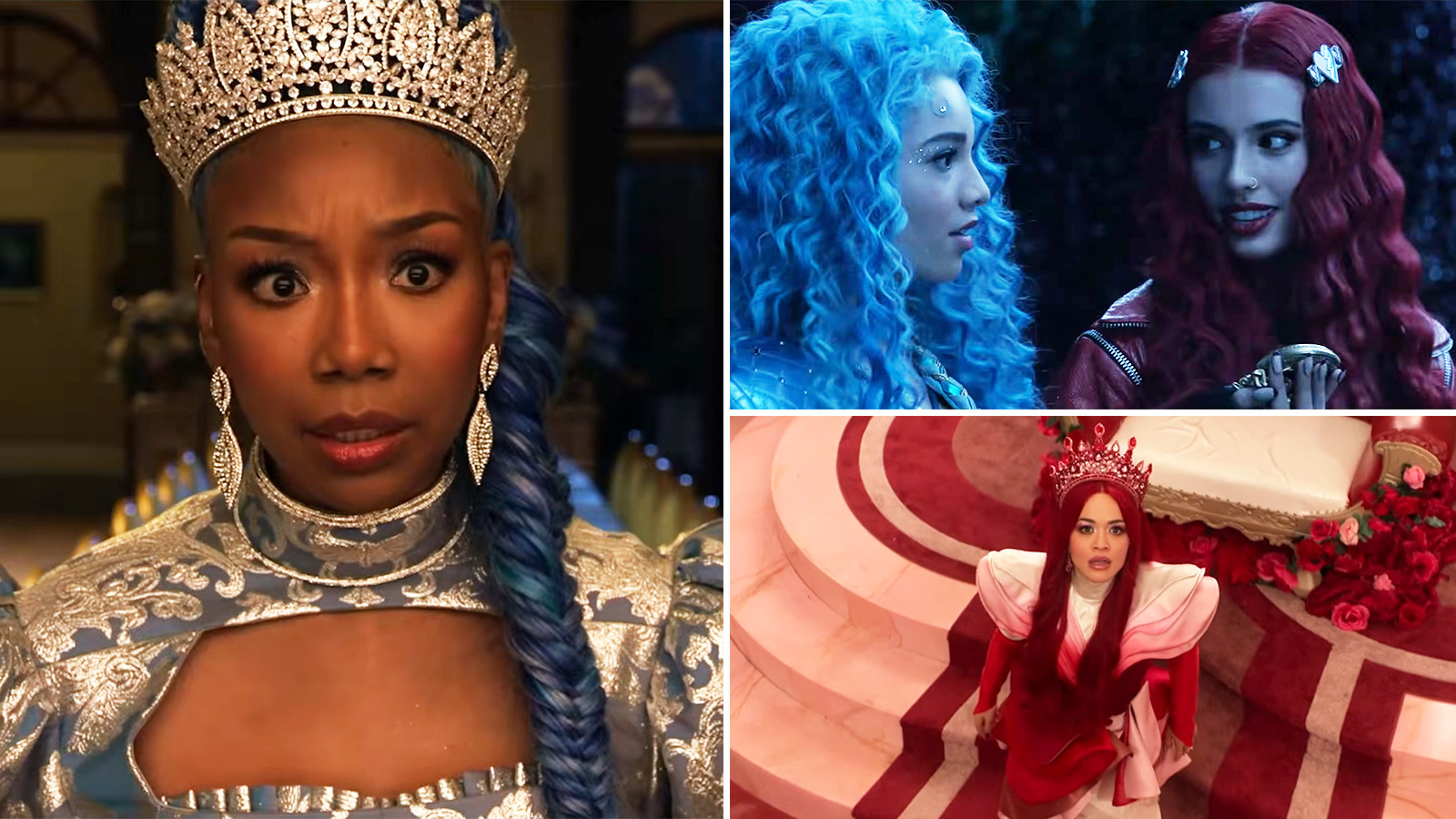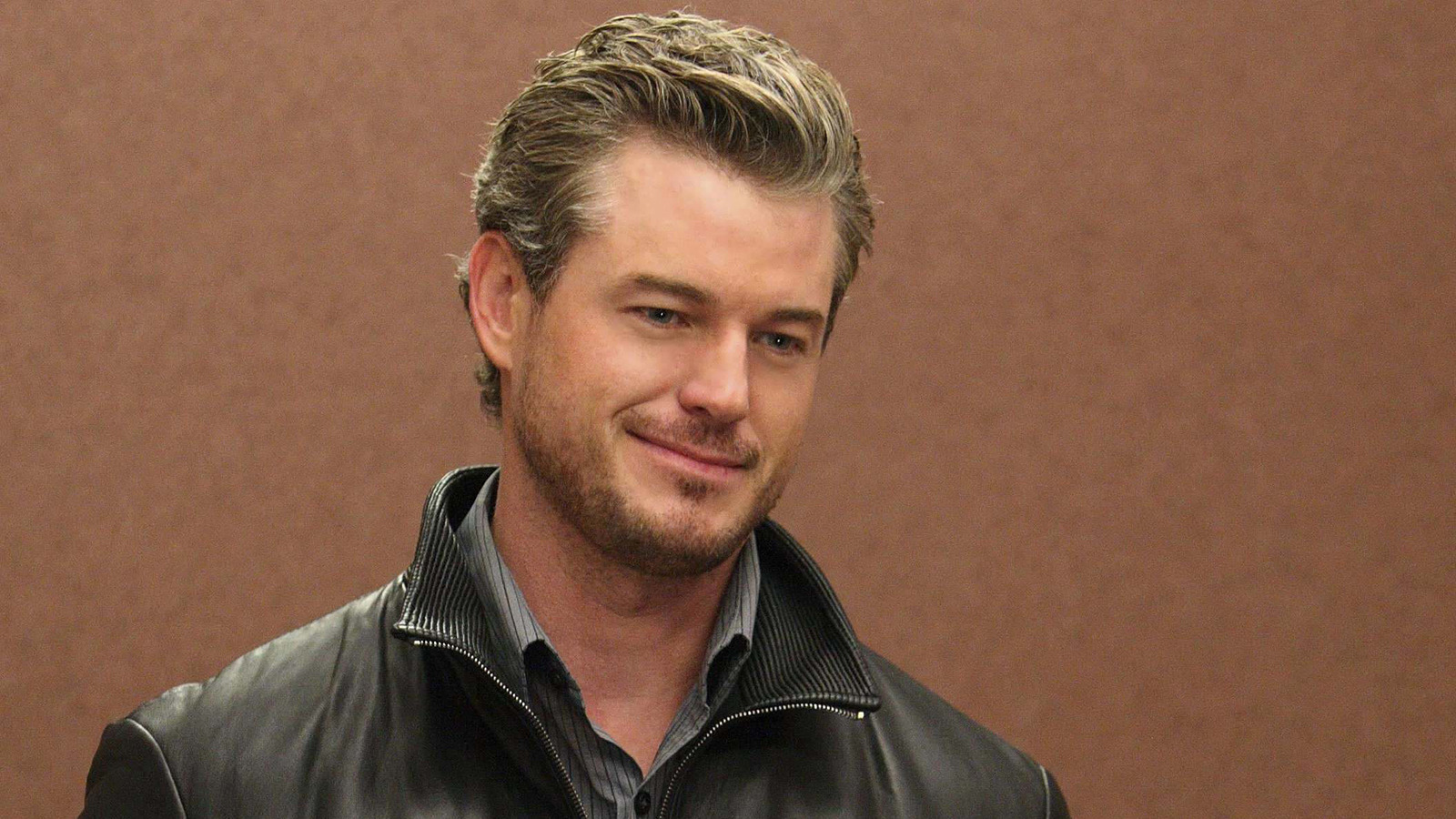It’s almost a running joke that the Dick Wolf series inevitably has a revolving-door cast.
It’s become frequent to the point of concern with the One Chicago series as we head into a new season with the loss of multiple characters across all three series.
And while the FBI franchise has its fair share of cast shakeups, nothing compares to whatever the heck happens on FBI: Most Wanted.
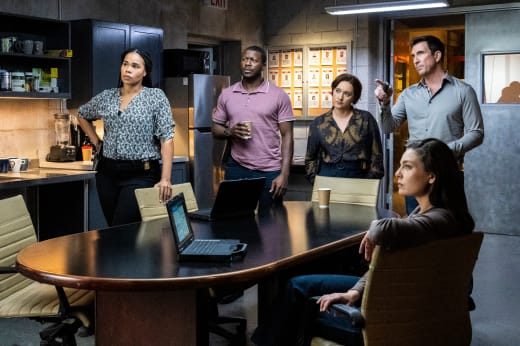
Seriously, is the series cursed somehow?
Can FBI: Most Wanted Season 1’s Cast Ever Be Topped?
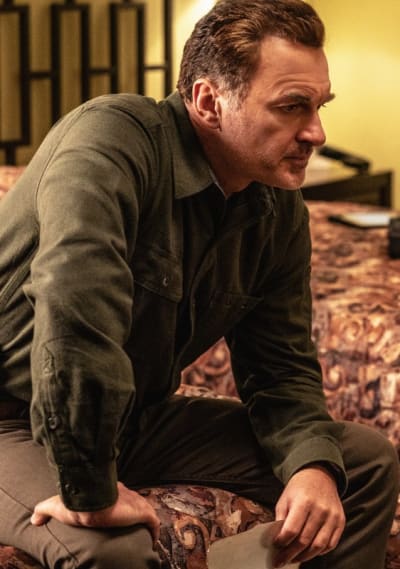
When FBI: Most Wanted first came onto the scene, it had a strong showing as a spinoff of the original.
Julian McMahon’s Jess LaCroix led the series, and unlike its predecessor, one of the most compelling angles for the show was that we spent a lot of time with Jess and his family at the center of the series.
Jess’ family was a touching stone he and the audience could return to after harrowing, action-packed, and emotional cases.
It was a refreshing change of pace for the franchise, as it excelled at delving into the personal life of its main character without detracting from the rest of the series.

The personal element made it easier for the viewers to connect with the characters, especially Jess, so unsurprisingly, we felt some deep kinship with Jess and the other team members.
It was also interesting to have Jess and his brother-in-law working in the same unit together, thus giving more than one character on the team that familial tie-in.
Related: FBI Most Wanted: First Look at Julian McMahon’s Final Episode
The relationship between Clint and Jess was unique and something the series hasn’t been able to replicate since. The more seasons pass, the more disjointed the entire unit feels.
It’s difficult to buy into this concept of the team as some form of pseudo-family when the family constantly changes.
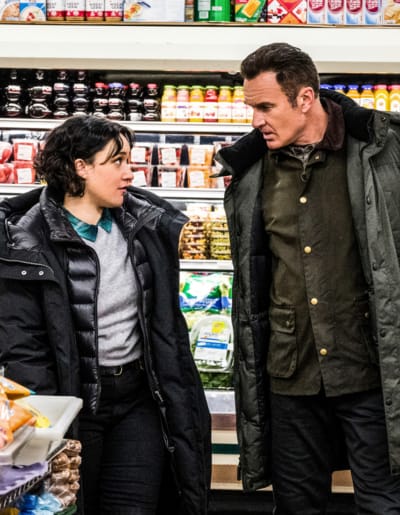
But in the first season, you at least got a sense of that, even when we were just getting to know all the characters. Everyone had their own special role and function, and they contributed something of value to the team.
The team didn’t seem as if it functioned fully unless everyone was bringing their A-game, and thus, they were not only interesting to watch, but it was easy to believe in how functional and effective they were as a unit.
FBI: Most Wanted’s Indigenous Representation was Unprecedented
Jess LaCroix’s backstory on the series made him a character you instantly liked and wanted to follow.

Your heart broke for him as a widow trying to raise a young girl while still grieving his wife.
But the family structure introduced something that you simply don’t see enough of on television, let alone mainstream, broadcast television: indigenous representation.
Seeing such strong Indigenous representation in a broadcast procedural was pleasantly surprising.
Typically, one only sees Indigenous characters in some rendition of modern westerns or historical dramas on cable television.
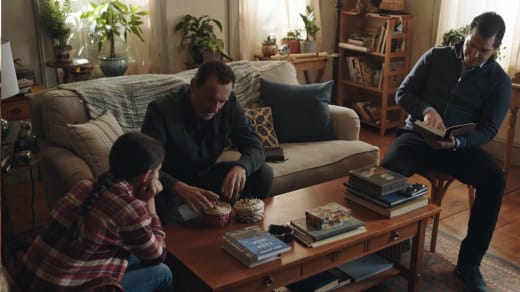
Yet, through Jess, we got this beautiful blended family when his brother-in-law and work colleague, Clint Skye, and his in-laws actively helped him raise his daughter, Tali.
Throughout the season, we would follow Jess home after a tough case and find ourselves immersed in this wonderful family and an effortless depiction of Indigenous culture as Tali’s relatives helped her stay connected to her identity and roots despite her mother’s death.
Related: FBI Season 6: Release Date, Cast, and Everything Else You Need to Know
The series also explored Indigenous culture through its cases.
One of the most compelling episodes of the series to date, “Ghosts,” addressed the struggles Indigenous communities still face, slipping through the cracks, and touched on the less-known history of Indian Boarding schools and the generational trauma that resulted from them.
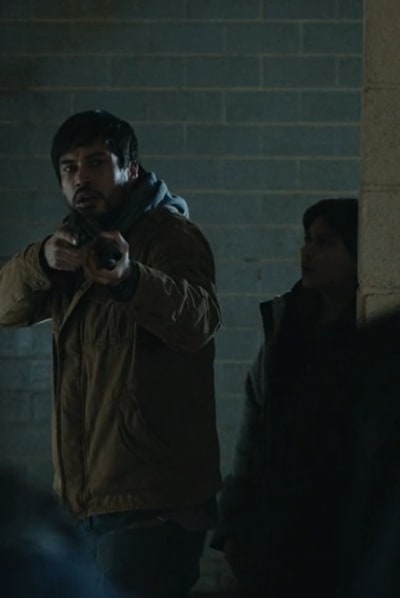
The series quietly yielded progress on that front, telling and showing these stories until it didn’t.
Arguably, the tone of the series and part of its casting issues definitely took a disappointing turn when the series mysteriously phased out Tali’s Indigenous grandparents and never revisited their existence again.
Shortly after, Nathaniel Arcand exited the series during FBI: Most Wanted Season 2 after missing episodes at a time and never having a proper farewell.
Suddenly, this groundbreaking element of the series ended, and Jess’s personal family arc became a bit more traditional and boring.
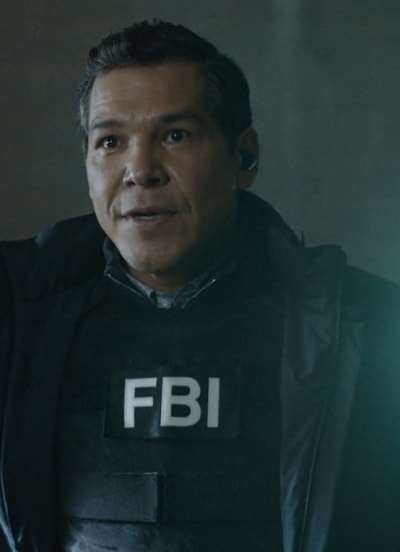
Could FBI: Most Wanted Survive Jess LaCroix’s Death?
Technically, sure, it’s doing okay.
Fans are still reeling from Jess’ fate after McMahon exited during FBI: Most Wanted Season 3.
And that was while we were still adjusting to the sudden departure of the beloved Kenny Crosby.

But Jess being at the center of the series for so long made it difficult to find a replacement for him.
In some ways, the series attempted to “split the baby” by expanding on the personal lives of the characters we knew best, like Sheryll and Hana, leaning into who have become the steady rocks of the series in an ever-changing roster of new characters.
And then, Dylan McDermott stepped into McMahon’s shoes, helming the series as the relatively polarizing Remy Scott.
While he’s doing a fine job, we can’t pretend the entire vibe of the series hasn’t changed, as he dominates most storylines.
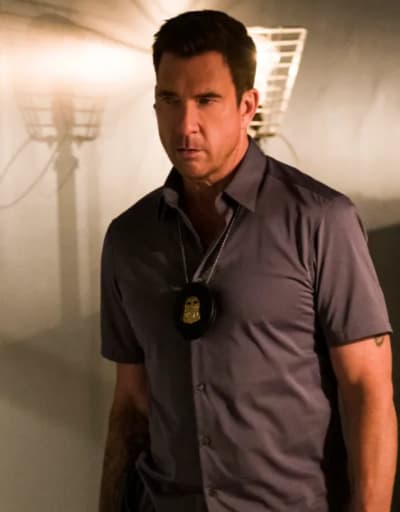
As the seasons progress, from Remy’s struggles to play well with others, including his own team, and his host of personal issues that consume the series when they’re not solving cases, the characters we’re most familiar with often get pushed to the fringes.
It became even more noticeable when Alexa Davalos’ Kristin Gaines debuted in season three among all these new changes.
Somewhere between the second season and the fourth, the series gained and lost Miguel Gomez’s Ivan Ortiz, who was quickly becoming a fan-favorite before he, too, departed, just as we were getting invested in the character.
And we’ve since gained Edwin Hodge’s Ray Cannon.

Will the FBI: Most Wanted Cast Musical Chairs Ever Stop?
Cast shakeups are standard fare for many series, notably broadcast.
Related: Miguel Gomez Exits FBI: Most Wanted After Two Seasons
Personal matters may arise, 20-episode per season procedurals are a considerable commitment, and sometimes actors want to pursue other projects.
The pandemic also profoundly affected the series and how actors could approach filming.
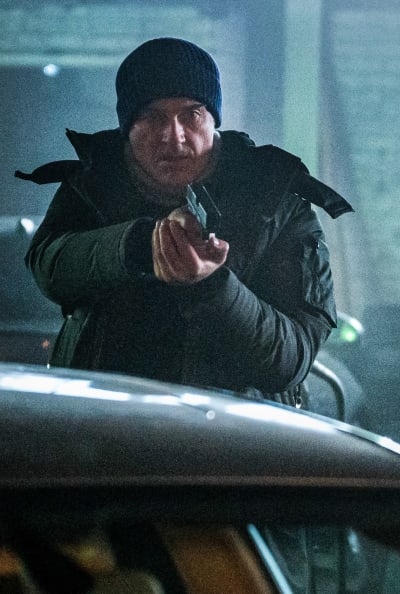
It’s not uncommon to have changes throughout a series.
However, it becomes grating when characters are in and out of a series so quickly that the viewers don’t even get enough time to invest in them or their stories.
At some point, you barely remember the characters’ names anymore, and you dread when they get personal arcs because there’s an innate fear that the character may not stick around long enough to have a satisfying conclusion.
We’ve seen this often in this series. Clint was virtually written off the series via throwaway lines, and viewers didn’t get to say goodbye.
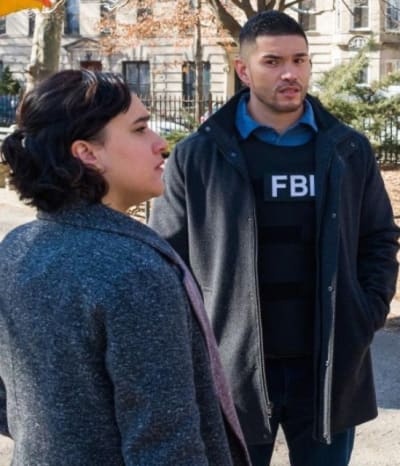
It was similar with the entire Skye family, and sadly, there was little room to explore Tali after Jess’ death, so she got shuffled off, too.
Crosby getting shot and heading home to Oklahoma to recover felt underwhelming once we concluded he wouldn’t get killed off. And Ivan left to care for his sick father, which was an even more lackluster farewell.
Related: One Chicago: With Cast Shifts, Shortened Seasons, and Budget Cuts, Can It Sustain Itself?
The constant departures and additions to this series are hard enough. But the storylines and writing dedicated to those exits and changes make it even more frustrating for viewers.
They’re either underwhelming or hovering on unforgivable.
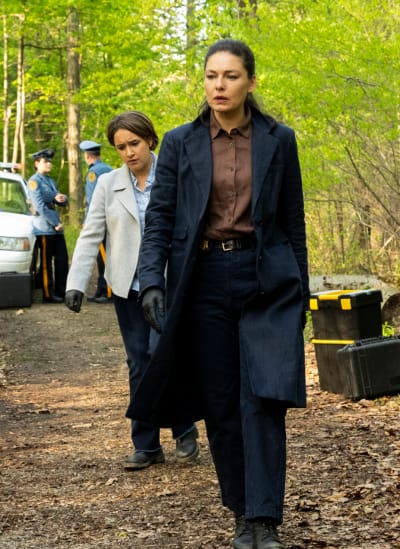
Can Shantel VanSanten’s Nina Chase Save FBI: Most Wanted?
As we approach FBI: Most Wanted, we anticipate another switchup with Kristin Gaines out and FBI’s Nina Chase in.
We’ve already discussed how Nina Chase’s addition to the series could be a breath of fresh air and just what it needs.
Viewers familiar with the franchise already know and love the character. She’s a familiar face, so it doesn’t feel like we must start from scratch with someone new.
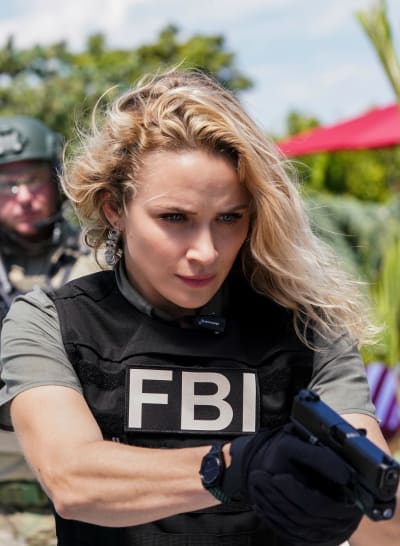
And because we’ve spent a decent amount of time with the character, namely after she temporarily filled in for Maggie, it at least feels like we have a stronger chance of her sticking around for more than a season.
Nina Chase is also someone who can hold her own, and she’ll add a bit of levity and balance to the series, which has become more skewed to Remy Scott.
Related: 4 Ways Shantel VanSanten’s Nina Chase Can Help FBI: Most Wanted
Nina is also a team player, so her presence will succeed in uniting the team and making them feel like a cohesive unit, which has been lacking for a long while.
It’s a promising cast change, but we can’t help but be wary regardless.
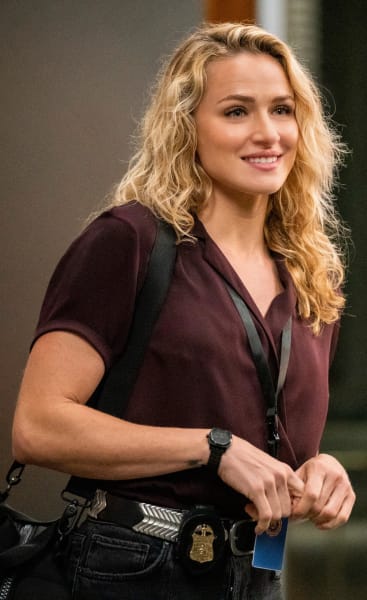
FBI: Most Wanted Would Benefit from an Anthology Setup
Understandably, the FBI franchise tries to be united in its approaches.
It’s also useful when the occasional crossover comes into play that they all have a similar way of filming.
However, it would’ve been interesting if FBI: Most Wanted broke from the fray and took an anthology approach to its casting.
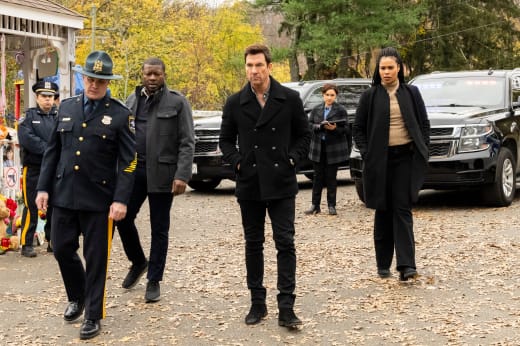
FBI: Most Wanted hasn’t truly felt the same in the first season, and it was arguably the cast at its best. Since then, the various shakeups have severely impacted the storytelling and quality of the series.
But a great way to get around the heavy rotation of characters would be if the series explored a new team every season.
It would be the best way to account for any cast changes during or between seasons without disrupting the flow of the series or storytelling.
American Crime was a successful anthology series that managed to keep some of the same leads, Felicity Huffman and Timothy Hutton, every season while they played totally different characters and told new stories, and it was riveting each time.

American Horror Story is one of the most successful anthology series to date.
FBI: Most Wanted having full episode orders means ample time for each season to explore each of the characters they have in some capacity while the unit solves cases.
Because the characters would have a concrete beginning, middle, and end, it would give the writers more direction and help them map out what they wanted to address and how they choose to flesh out each of the characters without the risk of leaving viewers hanging or getting thrown off by a sudden exit.
The anthology approach could also be fun if the actors got to play drastically different characters than they previously played.
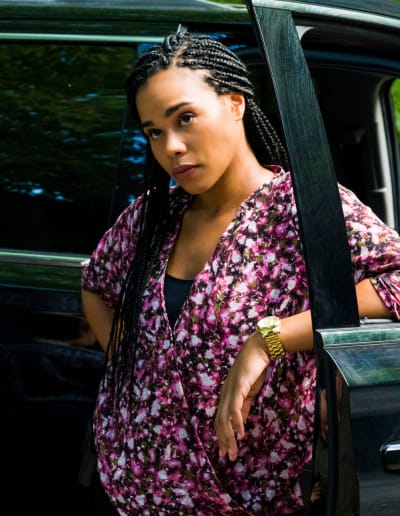
For one, it could’ve led to interesting approaches like seeing different people in authoritative positions running the team.
It also could change how the series approaches its cases by allowing the unit to spend more than one episode attempting to track down a fugitive.
Anyone who enjoyed Dylan McDermott in Law & Order: Organized Crime knows how well he plays a “bad guy.” How interesting would it be if he spent one season as Remy Scott and another as a long-term fugitive the unit was trying to recover?
But even if FBI: Most Wanted were to focus on the crime-fighting unit specifically, it would have been a refreshing change of pace to see the actors representing all different types of task force units.
Each season could’ve explored a different unit whose approach or chemistry with their team was unique from the one before. Perhaps some units play things by the books more, and others have a penchant for going rogue.
Some units may be more like a family, while others aren’t.
Related: Chicago Fire: How Kara Kilmer’s Exit Affects the Show Greatly
The current formula has the cast constantly feeling disconnected because it changes so much that it never finds its rhythm.
If FBI: Most Wanted took a more anthological approach, it wouldn’t ever feel this disjointed, and viewers wouldn’t have such a hard time adapting to the changeups or investing in the series’ characters.

It wouldn’t feel so jarring when the narratives switch up, and we’d still get the crime-fighting, fugitive-chasing action that we love so much in the first place.
Whenever you tune into a series like this, seeing some of the characters in the background or references to other teams and units is always interesting.
As an anthology series, FBI: Most Wanted could’ve explored them, peppering in references to the other teams only to show them the following season, with whatever cast members remain and new recurring ones.
One imagines that it would’ve also helped with the budget aspect of the series. It’s much easier to accommodate actors for a season than multiple ones.
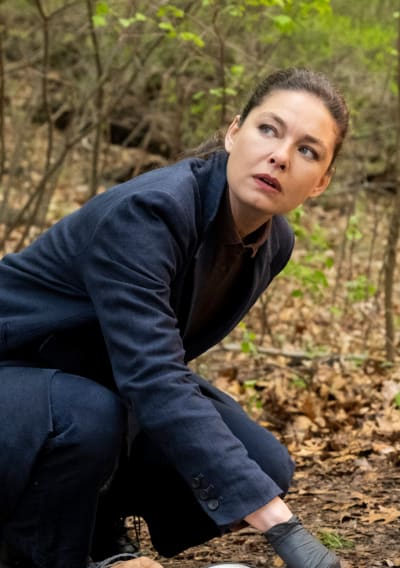
It’s also easier for actors to join projects for a season rather than committing themselves to more than one if they’d rather seek other opportunities.
As an anthology, FBI: Most Wanted could’ve done well balancing out the lifestyles of agents in a task unit like this, showcasing the excitement of how they approach cases and track down fugitives while also exploring the various ways they live their lives off the clock.
Related: Chicago PD: How Hailey Upton’s Departure Impacts the Landscape of the Series
In many ways, an FBI: Most Wanted anthology series would’ve given us the best of the FBI franchise combined with some of the appeal of Criminal Minds.
The anthology format can be challenging to navigate, but in hindsight, when you consider the constant cast shifts for this series, FBI: Most Wanted definitely would’ve benefitted from that method of storytelling.
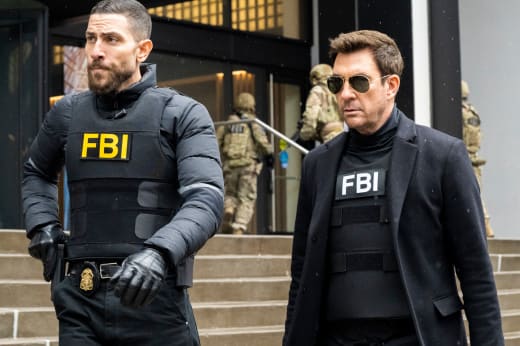
We know it’s too late for it now, but wouldn’t it have been perfect?
Over to you, FBI: Most Wanted Fanatics.
What do you think? Would the series work better as an anthology?
How do you feel about all the changes over the years? Sound off below!
Edit Delete
Jasmine Blu is a senior staff writer for TV Fanatic. She is an insomniac who spends late nights and early mornings binge-watching way too many shows and binge-drinking way too much tea. Her eclectic taste makes her an unpredictable viewer with an appreciation for complex characters, diverse representation, dynamic duos, compelling stories, and guilty pleasures. You’ll definitely find her obsessively live-tweeting, waxing poetic, and chatting up fellow Fanatics and readers. Follow her on X.


